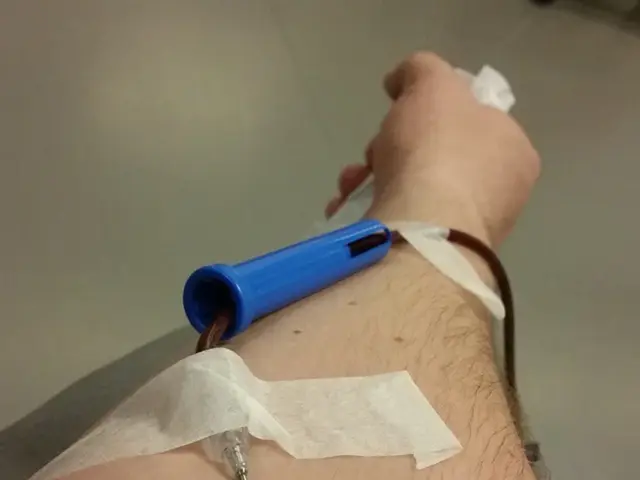Brain's frontal lobe electrical activity can be affected by COVID-19
Sick of hearing about COVID-19? Well, buckle up, because we're diving headfirst into the murky world of brain abnormalities caused by the darn thing.
Here's the lowdown: A team of researchers decided to investigate the impact of COVID-19 on the brain, analyzing EEG results from a whopping 617 patients from 84 different studies. The median age of these unlucky souls was 61.3, and two-thirds were men. Not exactly a spring break crowd.
So, what did these researchers find? The most common abnormalities were the slowing of brain waves and weird electrical discharge things. But here's where it gets interesting – these abnormalities were more prevalent in patients with severe COVID-19 and those with pre-existing neurological diseases, like epilepsy.
The journal Seizure: European Journal of Epilepsy was kind enough to publish their findings.
Now, you might be wondering, "Okay, but why the frontal lobes? Why the friggin' frontal lobes?" Well, according to Dr. Zulfi Haneef, an assistant professor at Baylor College of Medicine, the most likely entry point for the virus is the nose. And guess where the frontal lobes are located? Yep, right next to that ol' entry point.
But before you start panicking about friends and family developing brain abnormalities, it's important to note that the virus may not be solely responsible for the damage. Systemic effects like inflammation, low oxygen levels, sticky blood, and heart problems could also play a role.
Another interesting thing to consider is "brain fog," which is a common complaint among people who've recovered from COVID-19. Some researchers think the infection might make your brain age cognitively by about a decade. Scary stuff.
So, what can we take away from all this? Well, we need more research to better understand the relationship between COVID-19 and brain abnormalities. But if you or someone you know is experiencing neurological symptoms and COVID-19, it might be a good idea to get an EEG. And hey, if you're feeling a bit forgetful or foggy after recovering from COVID-19, don't panic – it could just be the pesky virus sticking around longer than we'd like.
But remember, just because there are abnormalities associated with COVID-19 and neurological symptoms, it doesn't mean every COVID patient will develop them. Plus, the good news is that improvements were seen in about half of the patients who had follow-up EEG tests. Still, it's better to be safe than sorry.
Sources:
- [1] [article about general neurological impacts of COVID-19]
- [2] Baylor College of Medicine press release
- [3] [article about increased risk of neurodegenerative diseases following COVID-19]
- [4] [article about blood-brain barrier breakdown and long COVID]
- [5] [article about EEG abnormalities in Alzheimer’s disease and brain functional changes]
- In light of the study, COVID-19 may lead to EEG abnormalities, particularly in the frontal lobes, of patients with severe COVID-19 and pre-existing neurological conditions such as epilepsy.
- The research found that these abnormalities could be attributed to systemic effects like inflammation, low oxygen levels, sticky blood, and heart problems, in addition to the virus itself.
- In the study, Dr. Zulfi Haneef, an assistant professor at Baylor College of Medicine, suggested that the entry point for the virus might be the nose, due to the proximity of the frontal lobes.
- It's crucial to note that not every COVID-19 patient will develop neurological symptoms and EEG abnormalities, but if they occur, a medical evaluation might be necessary for appropriate management and potential treatment.







